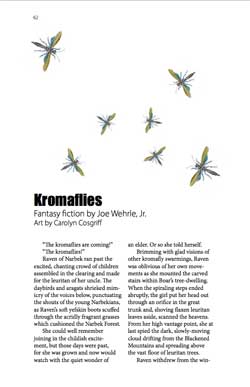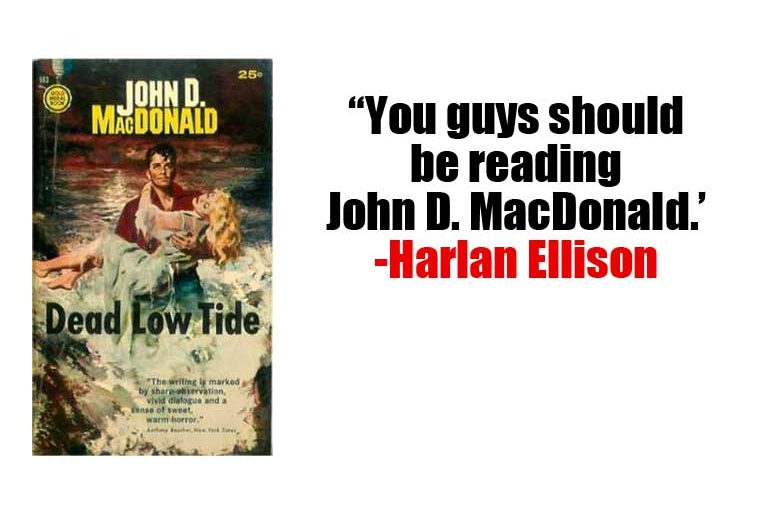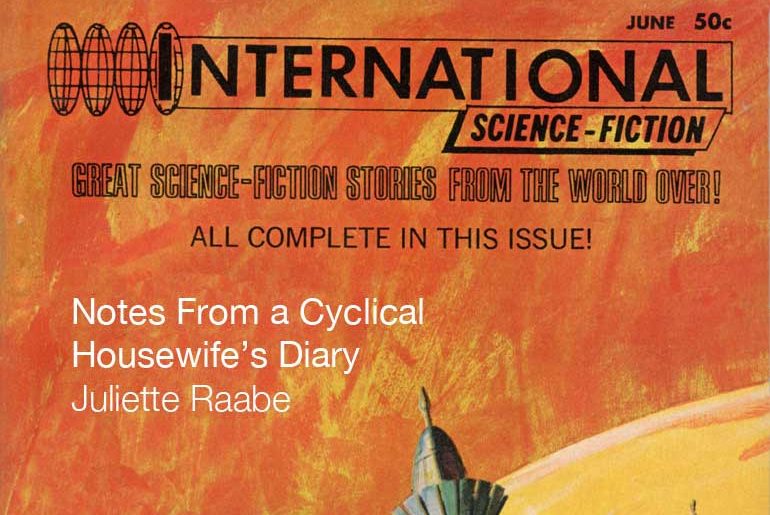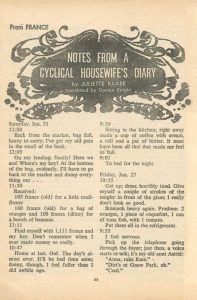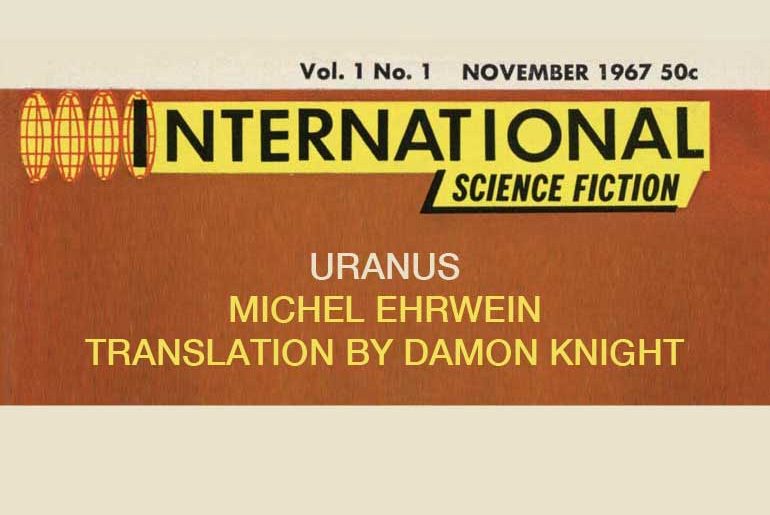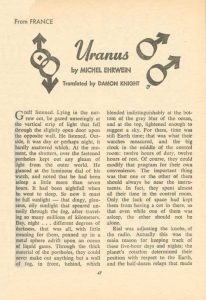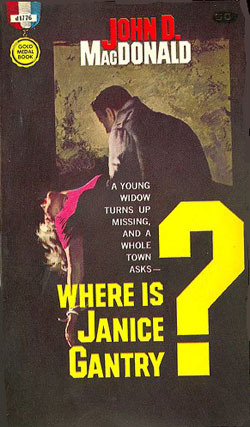
Excerpt from “The Creative Works of Joe Wehrle, Jr.” from The Digest Enthusiast No. 8, June 2018. His story, “Kromaflies,” appears in The Digest Enthusiast No. 10, June 2019. (Quotes gleaned from Joe’s interviews or correspondence.)
In 1968, Robin Scott Wilson organized the first Clarion Writers’ Workshop for fantasy and science fiction at the Clarion State College in Pennsylvania. The staff of visiting lecturers during its first year included Judith Merril, Fritz Leiber, Harlan Ellison, Kate Wilhelm, and Damon Knight. Joe Wehrle, Jr. was one of several students lucky enough to attend.
“When I attended the workshop in 1968 (with Karen and five-month-old Jill outside on a blanket among the trees),” Joe said, “Harlan Ellison told us, ‘I know we’re talking science fiction writing here, but if you want to study a really good modern writing style, you guys should be reading John D. MacDonald.’ Two I particularly remember enjoying are Dead Low Tide and Where is Janice Gantry, and his dozen or so Travis McGee stories are all very good too. The last one, The Lonely Silver Rain, is compelling, because, along with the mystery, Travis discovers and gets to know a daughter he had no idea existed.”
While at the workshop, Joe told me in 2010: “I wrote a story called ‘Kromaflies,’ which Robin Scott Wilson liked, Fritz Leiber felt showed that I had put a lot of thought into the development of the society I wrote about, and Harlan Ellison pretty much hated, although he did agree I was a ‘plotter,’ which was high praise from Harlan, who had no patience with anyone who wrote off the top of their head with no object in mind.”
Joe’s bibliography appears on the Larque Press website.
